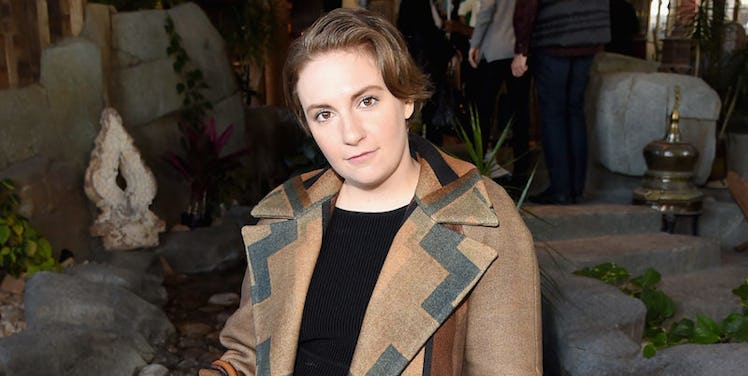
How I Finally Came To View Lena Dunham As A Progressive Feminist Icon
Like most pretentious girls who think they're rebelliously progressive, I deeply disliked Lena Dunham at first. I thought her show on New York liberal arts college brats was less of a commentary, and more of an indulgence.
I disliked her constant nudity, lack of racial diversity and strange, sometimes repulsive sexual encounters available in each episode of HBO's "Girls."
But, there was something about Lena I had always appreciated: her unbelievable success at such a young age. She is the rare woman in charge. It's her show in every sense, including the writing, acting and directing. That's what makes "Girls" her brainchild, and it's one she gave birth to at the mere age of 26.
As another female writer and aspiring entertainer, Lena's ability to achieve had always won my respect. Over time, Lena became the friend of a friend.
Her relationship with Jack Antonoff (known for his amazing contributions to the band Fun, and now his solo debut, "Bleachers") made me think, "Damn, that's a creative power couple."
In addition, her strange friendship with Taylor Swift, who has also grown in my heart as a brave woman and empowering icon, inspired me to really try to get to know Lena. In my experience, the easiest way to know someone fast is to read his or her memoir. On a recent trip to the Borrego Desert, I downloaded the "Not That Kind of Girl" audiobook and was unexpectedly floored.
I am so grateful I took the time to understand Lena because I think it helped me further understand myself. The same spark that drew millions to Taylor Swift for years lingers under Lena's tattooed shell, and it has to do with honesty.
She has brave, brutal, liberating honesty. It's the kind that is not always likable, but so much more powerful. I spent six hours with Lena, and I feel like she's my best friend. No, I actually feel like she's me.
Emotionally fragile, but unintentionally bold, the Lena Dunhams of the world are born feminists because their very existence is refusing to apologize. And it's not in the conceited, hurtful sense.
Lenas are messes who don't shout "sorry" at the patriarchy when they're less than beautiful. Lenas do not file down their personalities, they do not lower their voices and they do not apologize for being awkward, silly and stupid because they value learning. Lenas are not afraid to grow.
Both men and women alike attack Lenas because they are not a pretty package of empowerment. We are not born social justice warriors.
For the Lena women, our greatest struggle is trying to represent ourselves. But, we do have compassion for everyone. We try to fight for others while still battling for a place at the table that we were never well-mannered enough to eat at.
This world wants us to be feminist, but not too aggressive. It wants us to be dissatisfied, but not angry. We should have a personality, but not one large enough to suffocate the alpha male in the room.
So much of "Girls" is an autobiographical struggle for identity and a rom-com about falling in love with yourself. "When Identity Met Insecurity" is a much messier, less politically innocuous journey than "When Harry Met Sally."
In the book, Lena's honesty did not show off the strong, in-your-face bitch everyone was hoping for. It showed us a fragile person. It showed us someone who is both the bull and the china shop, unafraid to make an entrance even when the belittling world shatters her with each step.
But guess what? She still walks on.
Walking on for Lena Dunham means unapologetically supporting women who are just as messy as she is.
Through her new Lenny Letter, she's given a platform for the (as crazy as it seems) underpaid Jennifer Lawrence, hyper-sexualized Emily Ratajkowski, Esperanza Spalding, Wendy Davis, Isabel Allende and most recently, Kesha. She's touched on all the subjects we are told are too dirty to discuss, including endometriosis, f*cking conservatives and getting vajacials. (Yes, that's a thing.)
Lena talks about things both old, white men and aggressive progressives are afraid of: the truth. It takes a lot of learning to find it and stumbling to change it.
Call her problematic. Call her a slut. Call her whatever. But call me a Lena, too.